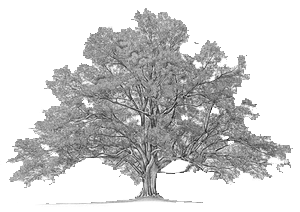 |
A place to remember, preserve & share information about our ancestors. |
|
Judge James H. BridgesJudge James H. Bridges, attorney at law and farmer, Kedron, Ark. As a leading citizen of Kedron, in its professional, business and social life, lending eminent strength to her bar, tone to her finances and grace to her society, Judge Bridges commands attention from the pen of the historian who would wish to do this town justice. He was originally from Chester District, S. C., born in 1841, and his father, Augustus A. Bridges,. was a native of North Carolina, born in 1807. The elder Bridges was married, in Chester District, S. C., in 1840, to bliss Mary Lee, and in October, 1858, they moved to Wayne County, Tenn., thence to what is now Cleveland County, Ark., in 1859, and settled on a partly improved farm in that county. He was a successful agriculturalist, and was also a mechanic of no ordinary ability. He died in 1885, and his wife in 1867. Both were members of the Missionary Baptist Church for many years. The maternal grandfather, James Lee, was born in Virginia, was a tiller of the soil, and died in Chester District, S. C. He was justice of the peace for a number of years. Judge H. James Bridges was the eldest of eight children. He obtained a fair education in the common schools of his native district, and was early initiated into the duties of farm life. At the breaking out of the war, be enlisted in Company G, Second Arkansas Infantry, and operated in Kentucky, Tennessee and Mississippi. He was in many skirmishes in Kentucky, and was severely wounded in the right arm at Shiloh, being disabled from further field service. He remained in the army, however, until July, 1863, when he was discharged. Returning to the farm, he was married, in 1867, to bliss Esther A. Culvert, a native of Alabama, and the daughter of William and Mary Culvert, natives of Ireland and Alabama, respectively. Mr. and Mrs. Culvert went from Alabama to Louisiana, and, in 1856, to what is now Cleveland County, Ark., where Mr. Culvert died, in March, 1865, from the effects of severe torture inflicted one month and two days prior to that date. He was called to his door one night by a body of masked "Graybacks," who asked the way to a certain place. They then demanded his money, and he gave them what he had, $700, but they still insisted that he had more, and to compel him to give it up, tied him between rails and set fire to them. His feet and legs were burned so badly that the flesh came off. Mrs. Culvert died in 1873, and was a member of the Missionary Baptist Church. Mrs. Bridges died in March, 1887, leaving five children: Alice (wife of A. J. Lemmond), Robert E., Charley Alexander, Mary and Panthia. For thirty-two years Judge Bridges has lived in his present neighborbood, and the same systematic condition of affairs about his home is apparent in his course as a man. Thorough in all that he does, he allows no worthy movement to drag for want of support, if it is in his power to help it. He has lived on his present farm for about five years, and has 360 acres, with about 150 under cultivation. all the result of his own industry. He followed farming until about 1874, and since that time has been practicing law, in connection with his farming interests. In 1882 he was elected county judge, and served in that capacity fur one term. In politics he was formerly a Whig, but since the war has been a Republican. His first presidential vote was for Seymour, from the fact that he did not like Gen. Grant. Biographical and Historical Memoirs of Southern Arkansas |
|